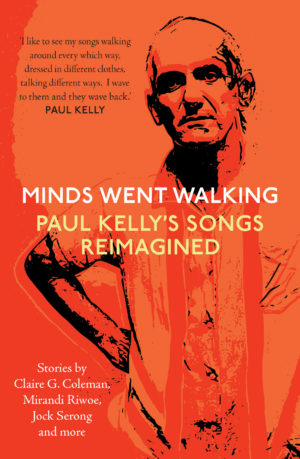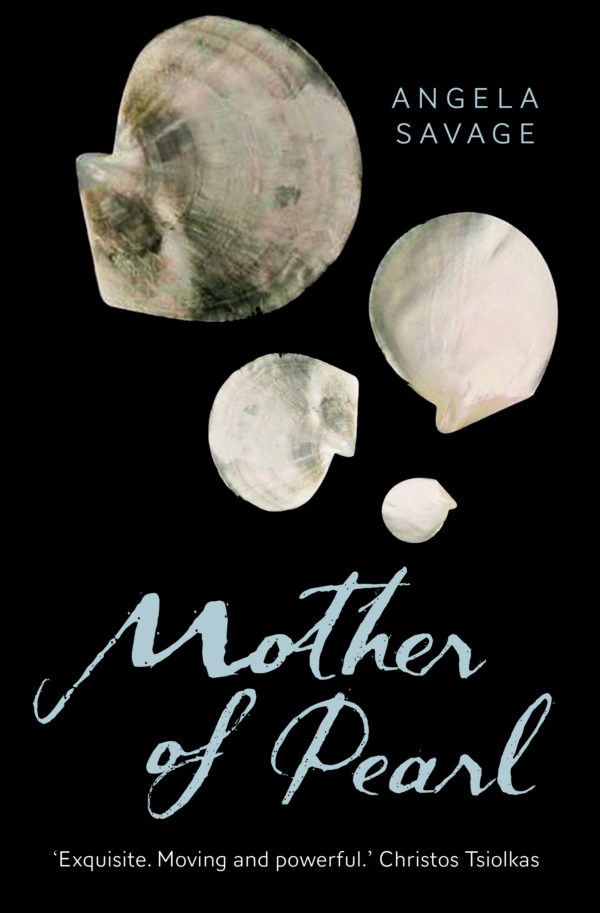Greg Bearup’s article in last Saturday’s Good Weekend magazine, Knights of the twilight zone about controversial Australian charity The Grey Man that rescues underage sex workers from Thai brothels, brought back vivid memories of my time in Southeast Asia in the early 1990s.
Bearup follows The Grey Man operatives around Pattaya — described as ‘the sex capital of Thailand’ — as they scope out brothels and plan raids to rescue underage girls. Most operatives appear to have military backgrounds, failed marriages and Thai girlfriends. Though rescue remains its main role, The Grey Man has learned that rescuing girls from brothels has limited impact. The organisation also supports education and employment programs for high tribe children, and run operations — sometimes in collaboration with Thai police — to ‘track predators’. Rival brothel raiders, especially those with a Christian evangelical bent, dismiss them as cowboys; and their focus on individuals is criticised by organisations like UNICEF that take a systemic approach to the problem of child sexual exploitation.
The same debates raged 15 years ago as today about whose approach to child sexual trafficking and exploitation was superior. Some argued that rescuing girls from brothels did nothing to address the factors that allow child sexual exploitation to exist — including widespread poverty, police corruption, disenfranchisement of ethnic minorities, gender discrimination, drug use — and might even worsen the situation by pushing it deeper underground. Brothel raiders argued then as they do now, “We are not looking for moral ambiguity. We are looking for bad shit.”
Brothel raiders I met in Thailand and Cambodia in the 1990s inspired the character of Australian Federal Police office Mark d’Angelo in my first novel Behind the Night Bazaar, set in 1996. There’s a scene in the book that taps into the ongoing debate about responses to child prostitution, where the main character, Australian expat detective Jayne Keeney, reflects on the difference between Mark’s individualistic approach and the more systemic approach of her AIDS activist friend Didier.
[Mark] insisted there was a straight line between the problem and its solution. Paedophilia was a crime and those who perpetrated it were criminals. Solution: arrest those responsible and put them on trial. In this, he had both the letter of the law and common sense behind him…
Didier would say such responses failed to take account of the complexity of the problem. ‘They’re missing the point,’ he’d told her… ‘For every paedophile put behind bars, there’s at least one other to take his place. For every child rescued from a brothel, the ratio is much higher. In the poorer areas, they’ll be five, maybe ten others. And those in power will keep turning a blind eye, because they benefit the most from maintaining the status quo. It’s not about individuals. It’s about the whole, rotten system.’
‘So what’s the solution?’
Didier shrugged. ‘We must find a way to eradicate poverty.’
I do not claim to have any sort of solution to the problem of child sexual exploitation in Thailand, although I believe legalising prostitution would go a long way towards stamping out the corruption that allows the sex industry to flourish (for an excellent analysis of this, see Guns Girls Gambling Ganja – Thailand’s Illegal Economy and Public Policy by Pasuk Phonpaichit et al).
But the problem I have with vigilante-style organisations like The Grey Man is the licence they take with the sovereignty of other countries. They admit to a degree of “moral imposition”. But I wonder how they would feel if the tables were turned.
What if bored ex-Thai military operatives motivated by “a desire to put something back” formed an organisation with a mission to rescue children from sexual abuse in Australia? Given that most sexual abuse of children in Australia takes place at the hand of someone known to the child, how would we feel about Thai commandos raiding private homes? Wouldn’t we be outraged if the local police were not always involved?
I couldn’t agree more with The Grey Man’s mission and its mandate to protect all children from all forms of exploitation and sexual abuse including the exploitative use of children in prostitution, pornography and trafficking (derived from the United Nations Convention on the Rights of the Child, Articles 34 and 35).
But I find it ironic that The Grey man takes its name from a military term for someone who works unnoticed in the background, when its operatives are all white men raiding brothels in foreign lands.
Surely a true Grey Man would be fighting the good fight in his own backyard.








Being exposed to the reality of prostitution and especially child prostitution in the context of material advantage (sex tourism) is disheartening. The institutionalisation of the trade in children and women will not be diminished whilst poverty and its collateral partner, corruption, remain.
Angela’s article does not proffer a solution but points at the moral ambiguity of a vigilante solution. The comments below address a similar moral ambiguity.
In the end I must agree with Didier. Whilst, poverty exists, so will prostitution. This is the supply side of the equation.
An interesting aspect of the supply side, is that examples of tolerance of its wholesale availability, occur in the context of significant hypocrisy.. Extreme forms of exploitation appear in countries where there is an expectation of chastity and fidelity for women. Disingenuity about the prevalence and persistence of male sexual demand, coincides with (un)official approbation.of its satisfaction. The most acute forms of this led to the creation of the sex trade hot spots in Thailand and the Philippines during the Vietnam war.
Of course higher levels of social welfare etc. would contribute to lower levels of exploitation, but, by extension, the increased availability of other forms of sexual gratification should also contribute to diminishing demand for prostitution. An alternate approach to the problem, could encompass looking at the demand side. As Wikipaedia points out – “A number of reports over the last few decades have suggested that prostitution levels have fallen in sexually liberal countries, most likely because of the increased availability of non-commercial, non-marital sex.” and it should be added the dramatic proliferation of pornography through the Internet.
The dilemma when dealing with human vice is that prohibition almost never works. It may well serve the interests of the morally self-righteous, but it only addresses one side of the equation.
Whilst morally repugnant to some, the availability of virtual sex, (i.e Internet forms of sexual gratification), may provide a form of harm minimisation – a diminution of demand for “wetware” prostitution, analagous to methadone treatment of heroin addiction.
Internet pornography is certainly not without its own cost of exploitation, however, the rationalist argument can be made that it satisfies significant demand and the technology of digital reproduction reduces the actual incidence of exploitation.
Endemic social problems cannot and will not be solved by individual vigilantism or societal prohibition. Attempting to deny or wish away the demand side of prostitution is unrealistic. As with narcotic drugs, harm minimisation should be considered as a more humanistic approach.
LikeLike
Thanks for your thoughtful comments Anthony. I am also a supporter of the harm minimisation approach for its pragmatism and humanity.
LikeLike
I know very little about this horrendous issue, although this website’s posts are quite illuminating. Been trying to get ahold of “The Half-Child” in the U.S. for weeks now. I will bother my library about it and keep watching Amazon and the Book Depository.
I’ve seen several documentaries about human and sexual trafficking in Thailand, Cambodia and India, and especially with children, forced sexual acts onto young women who are physically abused if they don’t comply, and more just become unbearable to watch. However, it is far more unbearable for those who are so abused than for those of us sitting over here in the States and learning about it.
The problems are so endemic that they call for widespread solutions, including social programs to help poor families, women and children; education; job opportunities, health care; anti-poverty programs. And I would say enforcement of laws against human and sexual trafficking; kidnapping; rape, abuse of children, etc.
The women and children are commodities. People, mostly men I’d assume, are making profits from their abuse, sale, etc. And I’d assume police are ignoring this or getting payoffs to ignore it.
It is so systemic that it’s shocking, but I know real.
It seems the whole system has to change. As long as profits are to be made, it will happen.
LikeLike
I wanted to that I’ve never heard of The Grey Men and have not thought about this issue of taking children away from predators by men from another country. Sovereighty is a good point.
It makes me think of missionaries going to Haiti and taking poor children, to adopt or put up for adoption. I know there’s a lot of corruption, abuse and profit-making with that, and a lot of chicanery and fraud can go on with that. And it does and also the exploitation of children.
I would say that the main problem in Haiti, as in many countries is the incredible poverty, unemployment, lack of education, health care, jobs, housing, everything. And that the countries need to be financially independent and be able to take care of its children. So poverty and inequality in these poor countries as compared to the highly industrialized countries is glaring — although right now the wealthier countries aren’t all doing so well and there’s much poverty there. There’s much to do with uneven development and wealth in the world. And who makes money from whose work or land or abuse or exploitatiaon. Huge issues.
LikeLike
I get your point about moralising outside ones juristiction, but seriously. These girls are given a choice to be ‘rescued’. Presumably the children suffering sexual abuse by a family member would choose to be rescued as well. But there is the trifling matter if identifying them. Secondly, do you really think that a western man looking for a ‘good time’ with a little girl is out of place in Thailand?
You also conveniently ignored the fact that besides involving police while rescuing children at risk The Grey Man is involved in providing education and infrastructure to the impoverished, thus attempting to address the root causes.
LikeLike
*jurisdiction*
LikeLike
I live in Thailand, and I can assure you that talking about vague notions of “finding a way to eradicate poverty” will not save one child from sexual exploitation.
Raids, such as those conducted by the Grey Man and others, do change the lives of trafficked children.
If we believe that each individual person counts, then each rescue is important.
To compare raids on paedophile- geared brothels, with Thai men coming to Australia and rescuing children from their abusive fathers, is nonsensical.
In this region, many children ARE sold into prostitution, and many are kidnapped for the same purpose, and may never see a family or community member again. Thus is common, with estimates of up to 10 MILLION children having sex with adults every night.
I don’t think the scale of this can be compared to sexual abuse in families – which it is the responsibility of the community to address.
The “clean up your own backyard” proponents might want to suggest a method by which those Westerners who are ablaze with indignation at child-sex-trafficking, might be able to channel that indignation into a useful way to stop sexual abuse of children in homes in the West. Ideas, anyone?
As for UNICEF, their own “efforts” to eradicate this problem have amounted to nothing – with child-sex-trafficking actually on the increase all over South East Asia.
I would like to see interviews with a dozen or so of the children that the Grey Man, or other similar foundations, have successfully rescued from brothels.
Let’s hear if the kids themselves think it was wise and worthwhile, for some men to come all the way from the West, and pluck them from sexual slavery, and arrange a safe home, education, and vocational training for them. (Thereby, incidentally, doing something about eradicating poverty – which, like all true change, can only start on a small scale, person by person, before it can spread to change a whole community.)
As a parent and grandparent of girls, the thought of any man violating a child repels me – and I believe every single child rescued from sex slavery counts.
If the rescuers are ex-cops, divorced, with Thai girlfriends ( a sweeping generalization) I can not see how any, or all of those factors will lessen the inestimable value of each life they pluck from this foul lifestyle.
I say, go for it, Grey Man, and all others like you, and know that you have the cheers and support of an expat in SE Asia who is daily being shocked and saddened by the unspeakable things that go on in this country.
Our children are our investment in the future – let’s value them and honour them, and support those brave men who are willing to save them from a horrific and short future.
LikeLike
Georgina, thanks for your thoughtful comments.
Although I have problems with their methods, I’d never suggest there is no value in what supporters of the Grey Man do. Most of us would seize given the chance to do something if we thought it would make a difference to a single child’s life.
My point is that until the conditions that allow the sexual exploitation of children to take place in any country are challenged and changed, raids on individual brothels will only ever benefit a few individuals and not make a difference to the estimated 10 million children you note may be having sex with adults every night. Conditions that enable the sexual exploitation of children to take place include widespread poverty, and also disregard for children’s human rights.
I’m no apologist for UNICEF but as flawed as it is, UNICEF does try to effect systemic change: to have the rights of children protected by laws, for example, to support better educational access for girls so they are less vulnerable to sexual exploitation, and so on. These activities do not have the immediate and dramatic impact of a brothel raid; it’s harder to generate money for systemic change. But systemic change is necessary to make a long-term, large-scale difference to children’s lives.
Not ‘and/or’ but ‘also/both’.
Incidentally, it’s my understanding that sexual abuse in families is overwhelmingly the most common form of child sexual abuse: 1 in 4 children in Australia are believed to experience some form of sexual abuse, the majority at the hands of someone known to them; the vast majority of the perpetrators are male. Raiding private homes isn’t an option. Providing better economic and legal protections for women and children is.
We are united in our desire to see children protected, valued and honoured. Believe me.
LikeLike
I believe you, Angela – and I agree that the conditions that lead to child sex-trafficking need to be eradicated. It’s good that various groups are trying to address some of these issues, and in the meantime, let’s not criticize anyone who is impelled to rescue individual children.
I still take my hat off to anyone who gives a child a chance to retrieve her childhood – the child is the one whose rights we must put first.
Another troubling concern is the complexity of the problem – if we could somehow eradicate poverty, straighten out crooked policeman, and wipe out greed, this would deal with traffickers and those in their chain who benefit financially from child sex-trafficking.
But, and it’s a big “but”, how would any organization or individual go about addressing the matter of the customers themselves? How to find, and eradicate the lusts of, the the men who pay to have sex with children?
Do you have any ideas about how men who have this particular sexual perversion could be re-educated en masse, and thereby remove the market for children on the sex industry?
Suggestions, anyone?
LikeLike
You might want to reconsider your views on The Grey Man given that you blindly accepted the portrayal of them by the media in general and by the two journalists who did separate beat ups on them over a so-called ‘fake’ rescue. The real story appears to have been far more involved than anyone thought. Have a look at
http://penhpal.com/2013/08/sisha-the-anti-trafficking-org-finally-unravels/
from post 74 onwards. Interesting reading
LikeLike